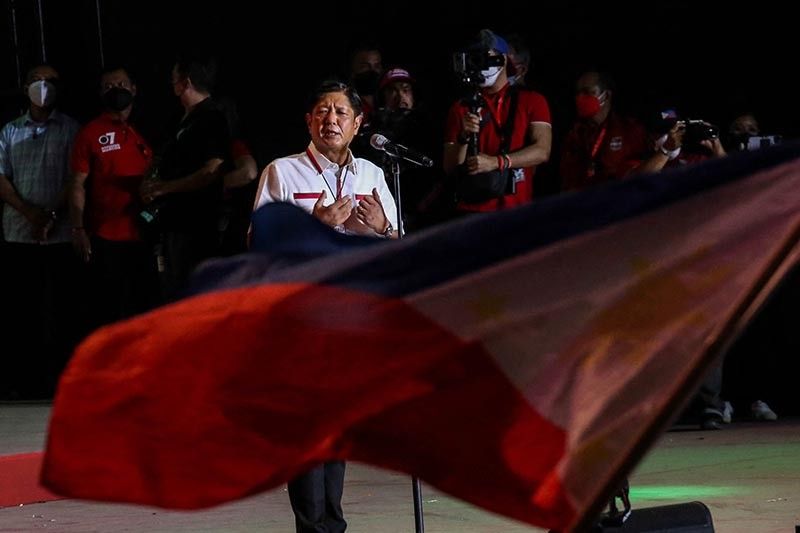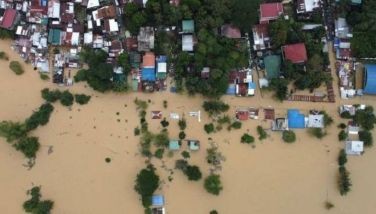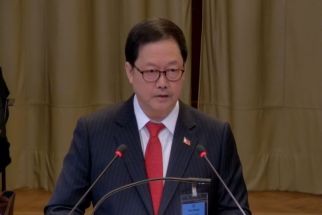Green wishlist: Climate, environment issues that Marcos needs to address

MANILA, Philippines — President-elect Ferdinand Marcos Jr. will face the mammoth tasks of protecting the environment and its defenders, and responding to the climate crisis during a crucial period that will determine who survives and thrives once he takes over the country's top government job on Thursday.
But Marcos, who won last month's election by a landslide, was seen as the “least green” presidential bet, according to anti-mining group Alyansa Tigil Mina. The group cited the absence of clear climate and environment programs that his administration will implement. Marcos shunned the media, debates, and forums during the 90-day campaign period.
“Having the environment and climate portfolios as a blind or weak spot in the new administration is unacceptable,” ATM said.
Marcos has yet to appoint a secretary who will head the department mandated to manage the country’s natural resources and ensure a healthful ecology for all Filipinos. Groups urged the president-elect to designate a passionate champion for conservation and protector of environment defenders as the next environment chief.
Ahead of his inauguration, climate and environment groups identified what they want Marcos to prioritize in the next six years.
Make climate action a priority
Climate action should be on top of the incoming administration’s agenda amid warnings that time is running out to ensure a liveable future for humanity.
The Philippines is one of the most vulnerable countries to climate change impacts such as strong cyclones, flooding, and sea level rise.
“If he is sincere in his pronouncements on climate action and promoting renewable energy, Ferdinand Marcos Jr. must drop all plans for nuclear energy and fossil gas,” Lea Guerrero, Greenpeace Philippines country director, said.
The president is backing the inclusion of nuclear energy—which environmentalists say is expensive and dangerous—in the power mix. He also said he will look into reviving the Bataan Nuclear Power Plant.
As the Philippines begins to kick its coal habit, fossil gas has emerged as the government’s preferred fuel. According to the energy department, increasing the share of liquefied natural gas infrastructure will be significant in ensuring the operations of the existing gas plants in the archipelago. But environmental groups like the Center for Energy, Ecology, and Development warn that this blocks the transition to cleaner and cheaper renewable energy.
Marcos has discussed the development of renewable energy sources with several envoys, who have expressed support for the country's energy transition.
Greenpeace also said the Marcos government should make climate justice a top priority by holding fossil fuel companies accountable for pollution and human rights abuses from their business operations.
READ: States, businesses have moral obligations to address climate crisis, CHR says in landmark report
Address waste problem
Pollution watchdog EcoWaste Coalition called on Marcos to implement "sustainable and socially just" waste policies and programs, and suspend the shift to waste-to-energy to address the country’s problems with garbage and pollution.
EcoWaste Coalition national coordinator Aileen Lucero said that Marcos needs to issue an executive order that will fast track the phase-out of non-environmentally acceptable products and packaging (NEAPP), with single-use plastics as an immediate priority.
In 2021, the National Solid Waste Management Commission released a resolution declaring plastic coffee stirrers and softdrink straws as NEAPP, a move criticized for not being enough.
Lucero also urged the incoming administration to hasten the government ratification of the Basel Convention Ban Amendment, which bans waste exports from developed to developing countries.
Marcos should also command the "faithful implementation" of the two decade-old Ecological Solid Waste Management Act, said Sonia Mendoza, chairperson of the Mother Earth Foundation.
Save ailing seas
For marine conservation organization Oceana Philippines, the next administration should address overfishing and illegal commercial fishing in the municipal waters, which are reserved for artisanal fisherfolk.
"The target is for 100% compliance by commercial fishing vessel operators of the vessel monitoring equipment, with criminal and civil sanctions imposed against violators of our fisheries laws and regulations," said lawyer Gloria Estenzo-Ramos, Oceana Philippines vice president.
Fisherfolk and conservation groups stressed that the full implementation of vessel monitoring measures will protect the rights of small-scale fishers and to ensure the seas will restore their bounty.
"The tide will turn if this is complied with by all," Estenzo-Ramos added.
Stop extractive, destructive projects
Grizelda Mayo-Anda, an environmental lawyer based in Puerto Princesa, called on the government to stop mining, and other extractive and destructive infrastructure projects such as roads and reclamation in all natural forests, watersheds, and protected areas.
Alyansa Tigil Mina suggested that the incoming administration convene a multi-stakeholder dialogue to tackle current mining issues, and prioritize the enactment of green bills such as those concerning alternative minerals management, sustainable forestry management, and land use.
Marcos is also urged to revoke the withdrawal of the Philippines from the Extractive Industries Transparency Initiative, a global coalition that works to improve accountability in the management of revenues from oil, gas, metals, and minerals. Finance chief Carlos Dominguez said the country withdrew from the initiative over what he called a "subjective, biased and unfair" quality assurance assessment.
The Duterte administration was criticized for lifting the nationwide ban on open-pit mining and the nine-year-old ban on new mining agreements.
Project feared to harm the environment and communities such as the New Manila International Airport in Bulacan and the Kaliwa Dam in Quezon province were approved during Duterte’s term.
Protect the defenders
The promotion and protection of the rights of the people and civil society organizations must be pursued, environmental groups said.
"The key to a healthy environment is a healthy democracy. To promote this, Marcos Jr. must support people’s participation in governance, strengthen democratic institutions, and advance and protect justice and human rights," Guerrero said.
The Philippines has been consistently identified as one of the dangerous places to stand up for the environment. From the election of Duterte in 2016 until the end of 2020, a total of 166 land and environment activists were killed, according to watchdog Global Witness.
EcoWaste’s Lucero said the incoming government should stop the practice of labeling environmental defenders as communist rebels or supporters, and ensure an open and safe space for civil society groups.
- Latest


























